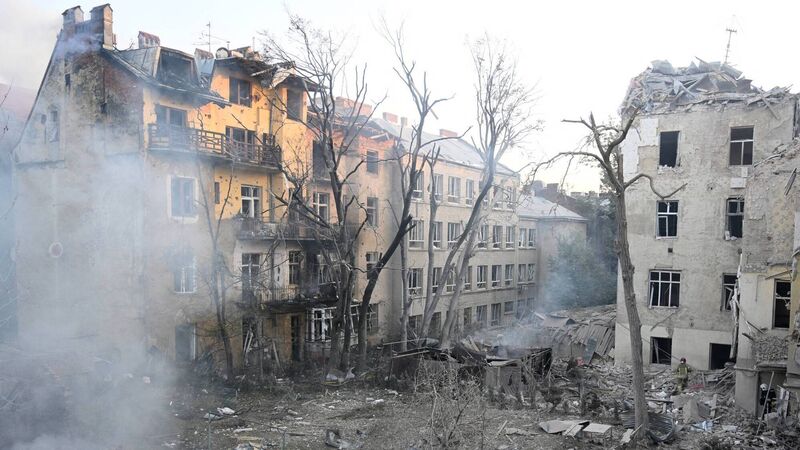The push to undermine Ireland’s neutrality faces public opposition

Damaged buildings following a Russian strike on Ukraine. “Attempts to chip away Ireland’s neutrality follow a familiar script: the geopolitical calculus in Europe has been altered by Russia’s invasion of Ukraine and as a result European states need to massively expand security spending and adopt a ‘war footing’.”
















